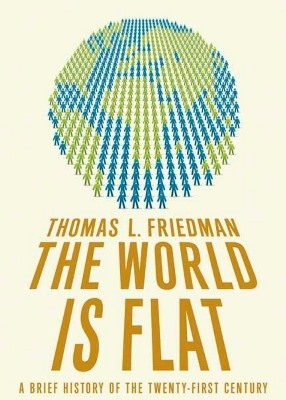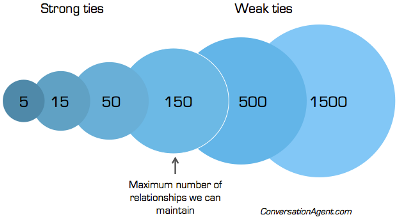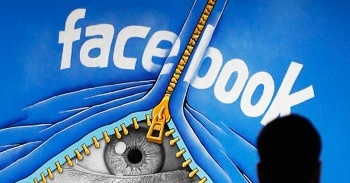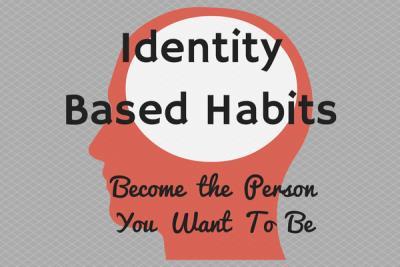Jeremie Averous's Blog, page 75
April 27, 2017
How Industrial Revolution Comparisons Are Not Comforting
In a very interesting article ‘Industrial Revolution Comparisons Aren’t Comforting‘ economist Tyler Cowen analyses the consequences of the revolution on labor and wages. In particular it shows that real wages actually went down during the period of adjustment for the average worker.
 I am fond of historical comparisons and parallels and this recommended article is a very interesting analysis. One important and interesting quote: “By the estimates of Gregory Clark, economic historian at the University of California at Davis, it took 60 to 70 years of transition, after the onset of industrialization, for English workers to see sustained real wage gains at all.” And Tyler Cowen compares the situation to the actual stagnation of wages since the late 1990s in developed countries.
I am fond of historical comparisons and parallels and this recommended article is a very interesting analysis. One important and interesting quote: “By the estimates of Gregory Clark, economic historian at the University of California at Davis, it took 60 to 70 years of transition, after the onset of industrialization, for English workers to see sustained real wage gains at all.” And Tyler Cowen compares the situation to the actual stagnation of wages since the late 1990s in developed countries.
One element of worry is of course that the Industrial Revolution led to the development of certain ideologies which led to revolutions and political instability and volatility – and much suffering.
Are we watching the same evolution now? This might be an issue to watch closely. I am not as optimistic as Tyler Cowen that this time we should be less extreme and more reasonable: the inclusion of developed countries in the Fourth Revolution will create substantial new sources of instability.

April 25, 2017
How the World is Not Yet Flat
Keeping all due respect to Thomas Friedman and his great best-seller book ‘the World is Flat‘, I have to observe that it is not quite the case yet. This stems from my observations as a globe-trotter and my activities as a publisher.
 Having moved from Singapore to France a few months ago I re-discover the convenience of online buying of groceries, books and all sorts of equipment. That was not possible even in Singapore (a developed country but a too small market in the midst of developing countries for most e-shops, and that also has some protectionist traits).
Having moved from Singapore to France a few months ago I re-discover the convenience of online buying of groceries, books and all sorts of equipment. That was not possible even in Singapore (a developed country but a too small market in the midst of developing countries for most e-shops, and that also has some protectionist traits).
At the same time as a publisher I get requests from people from various countries like South Africa or less developed countries who want to get a paper copy of our books. Because e-bookstores are not convenient there I need to organize specific logistics from the digital printing shops we are using – and they are all located in western countries.
Notwithstanding the recent hints at increased protectionism, new technologies have brought an unprecedented access to information and dematerialized content. As for material goods, there are still wide differences and gaps due the maturity of distribution channels between countries.
The world will be flat when there will be an equality in the distribution of material goods globally. It is going in that direction but there is still a lot of way to go.

April 22, 2017
Why We Need to Move Forward Always, and Never Stop
I love this quote from humorist commentator Will Rogers: “Even if you’re on the right track, you’ll get run over if you just sit there“.
 This recommendation for always continuing to move along in the right direction is compelling. Remaining static actually creates the possibility of becoming obsolete with regard to the rest of the world; it also creates the possibility of self regression by lack of evolution. If we stop, it is a kind of small death.
This recommendation for always continuing to move along in the right direction is compelling. Remaining static actually creates the possibility of becoming obsolete with regard to the rest of the world; it also creates the possibility of self regression by lack of evolution. If we stop, it is a kind of small death.
I believe what is meant here is not necessarily to always try to move forward at great strides; sometimes, we need to resupply and move slower, but what is important is to move forward at all times.

April 20, 2017
How our Core Personal Network Evolves Quicker with Social Networks
According to common knowledge it is difficult to entertain tight bonding with more than about 150 people at any one time. This is called the Dunbar’s number, a concept developed in the 1990s. However with the Fourth Revolution, I believe the rotation frequency of this tighter community might have increased.
 The approximate number is probably applicable and maintaining actual strong bonds with this group of people requires some engagement, as reminded to us by Valeria Maltoni in her post ‘Most of our Activities require a Combination of Bonding and Bridging‘.
The approximate number is probably applicable and maintaining actual strong bonds with this group of people requires some engagement, as reminded to us by Valeria Maltoni in her post ‘Most of our Activities require a Combination of Bonding and Bridging‘.
My observation is that with social networks that allow us to maintain weak ties with a lot more people in a more intense manner than before, the composition of this elect group of stronger bonded people is much higher than before. Depending on exchanges, meetings and opportunities, we tend to renew this group much more frequently than before (around a much smaller stable core community). This has implications about the relative impermanence of stronger bonds which might be an issue, while the accelerated renewal rate is an opportunity for a richer life as well.
Is that your case also that your tighter community tends to rotate quicker than before?

April 18, 2017
How Facebook Is Buying Third Party Data to Enhance the Value of Your Profile
This Business Insider article ‘Facebook is quietly buying information from data brokers about its users’ offline lives‘ is a huge eye opener on the business model of social network companies.
 In order to enhance significantly the commercial value of your profile (which they resell directly or indirectly to advertisers), they complete it by buying additional data not directly from your usage of the platform!
In order to enhance significantly the commercial value of your profile (which they resell directly or indirectly to advertisers), they complete it by buying additional data not directly from your usage of the platform!
And the interesting aspect of it is that it appears to be practically impossible to opt out of all these data gathering sources.
Anyway, while I was quite sure that all those social networks would have had enough of all the data handed to them by us using their service, they seem to need more still. Scary, isn’t it? Maybe an area for regulation soon!

April 15, 2017
How the Internet of Things Winners Will Be the Ones Overcoming Hacking Risks
The Internet of Things is spreading, multiplying the number of clever devices and intruding deeper in our privacy. Those who will succeed in that market are those that will master the technologies that avoid fraud and excessive privacy intrusion.
 The Internet of Things faces huge hacking risks. For two reasons:
The Internet of Things faces huge hacking risks. For two reasons:
IoT devices are relatively easier to hack because they do not usually include software upgrade and because they are based on standard chips with many more functionalities.
The consequences of hacking can also be much more visible, being devices that control the physical space.
Lately there have been some attacks launched from networks of connected IoT devices, that have been greater than anything recorded yet – for example read ‘A massive attack that may have hijacked online cameras will soon be “the new normal’.
At the start of internet, many services collapsed due to the issue of managing spam and fraud. For example, lots of paypal competitors died of this scourge, and paypal survived by having, from the start, implemented strong anti-fraud features.
The same will happen in the IoT: the survivors will be those that will develop and implement the technology that will avoid as much as possible hacking and subornation of their devices. This should be a key research angle for those that want to succeed in this field.

April 13, 2017
How Data Privacy Issues Are Mutiplied by the Internet of Things
Data is at the core of the business model of the internet. Our private, personal data actually. And, as Cory Doctorow writes in one of his usual well-researched rants, ‘The Privacy Wars Are About to Get a Whole Lot Worse‘. The reason is the emergence of the Internet of Things.
 The Internet of Things (IoT) started already with the smartphones. Because we will progressively be surrounded with sensors that will measure many things and even listen to what is being said or done, our privacy will be even more exposed than now.
The Internet of Things (IoT) started already with the smartphones. Because we will progressively be surrounded with sensors that will measure many things and even listen to what is being said or done, our privacy will be even more exposed than now.
“The returns from data-acquisition have been declining for years. […] Diminishing returns can be masked by more aggressive collection. If Facebook can’t figure out how to justify its ad ratecard based on the data it knows about you, it can just plot ways to find out a lot more about you and buoy up that price.”
We probably underestimate already the license we give to our smartphone and its apps to use various channels of data recovery. As Cory Doctorow underlines, no-one really bothers to read the long license agreements, and anyway what can you do if you disagree? We can’t go negotiate one particular section with Google or Facebook, can we?
Cory Doctorow’s point is that one day, on some particular issue, a judge may grant significant compensation because of the indirect usage of personal data. However this day is far away. AT the same time this privacy issue is currently slowing down the spread of IoT and its convenience. A solution must be found.

April 11, 2017
How to Create New Lasting Habits
One thing that goes in the way of creating new different habits is certainly the way we look upon ourselves. If we want to change a habit that is aligned with our sense of identity, or the identity we want to project outside, we will fail.
 “The key to building lasting habits is focusing on creating a new identity first. Your current behaviors are simply a reflection of your current identity. What you do now is a mirror image of the type of person you believe that you are (either consciously or subconsciously). To change your behavior for good, you need to start believing new things about yourself.” writes James Clear in his post ‘Identity-Based Habits: How to Actually Stick to Your Goals This Year’.
“The key to building lasting habits is focusing on creating a new identity first. Your current behaviors are simply a reflection of your current identity. What you do now is a mirror image of the type of person you believe that you are (either consciously or subconsciously). To change your behavior for good, you need to start believing new things about yourself.” writes James Clear in his post ‘Identity-Based Habits: How to Actually Stick to Your Goals This Year’.
I would add, not only starting to believe new things about oneself, but projecting them and publishing them too, which will make the case much stronger for change.
Reflect on your identity and check whether there is not something there that impedes changing some habits?

April 8, 2017
Why We Should Exercise More Our Gratitude
We should exercise more our gratitude.
 Gratitude is essential for healing and for helping others. It is an essential ingredient of our lives that is too often overseen.
Gratitude is essential for healing and for helping others. It is an essential ingredient of our lives that is too often overseen.
Like this quote from Neale Donald Walsh: “The struggle ends where gratitude begins”
Tony Robbins in this video explains how he exercises gratitude for a few minutes every morning as part of his start-the-day ritual.
Gratitude can be exercised. Every day. When do you start?

April 6, 2017
How the Clustering of Knowledge Disrupts Our Institutions
In a well quoted Medium post ‘The Most Disruptive Transformation in History‘, Richard Florida makes the point that “the clustering of knowledge over physical labor? is among the most disruptive in recorded history“.
 Is there light only where there is knowledge?
Is there light only where there is knowledge?His analysis is mostly focused on the clear demarcation between rural and city votes and feel during the last US presidential elections. He interprets is as a geographical clustering of knowledge in cities and makes the point that power should be given back to the cities that would be the new driving political forces of the Collaborative Age.
I do not fully agree with this analysis of geographical clustering because it remains to be shown that knowledge concentrates geographically. There are strong diverging forces also at play, including internet access from anywhere and a certain trend at least in some countries for knowledge workers to work remotely and move back to the countryside.
At the same time, there is clearly clustering of knowledge among only a small part of the community, and at least in the virtual space. And this still does challenge our current institutions.




